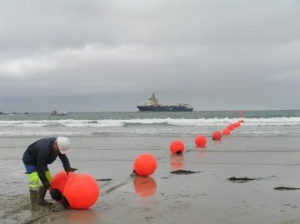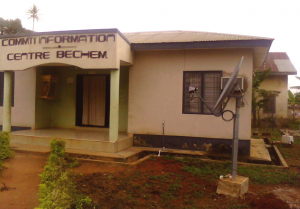In December 2022, MCC’s Board of Directors identified Senegal as eligible for a new regional country compact. Throughout 2023, under the MCC Economic Analysis (EA) BPA Constraints Analysis Task Order, Integra provided analytical support to aid the selection of the Compact’s sector of focus.
In late 2023, Integra was further engaged to support the co-design and developing concept notes for the Compact using a Problem Driven Iterative Adaptation (PDIA) process. The assignment was to utilize PDIA to help MCC and the Government of Senegal (GoS) jointly arrive at concepts for investment that are locally owned and driven, thereby increasing the likelihood of the long-term success and sustainability of projects and any associated reforms. The initial analytical support and the PDIA process built on existing research that fed into a Root Cause Analysis – resulting in a Compact that was evidence-based and supported throughout the ecosystem of stakeholders.
The primary objectives of the assignment were to identify restrictions to productivity and competitiveness within the selected sector – that are narrowly defined, highly detailed, have regional salience, and are well targeted to marginalized groups. This meant facilitation of a co-creation process between MCC and the GoS, through which the GoS generates a set of proposals for interventions that:
- Promote inclusive economic prosperity for Senegal and the region – through the Blue Economy and selected sub-sector – as well as environmental sustainability,
- are meaningfully linked to a set of separately developed “concepts” and
- Enjoy strong support across the government and key stakeholders.
Additionally, given that the PDIA methodology is relatively new to MCC, a secondary objective was to build PDIA understanding and skills for select MCC staff members.
The Integra Team designed a custom PDIA process for the assignment based on the MCC and Senegalese teams’ unique operating environment, challenges, and strengths. The assignment began with 1) initial remote advisory support during an inception process of engagement and dialogue between MCC and the GoS, and the hiring of a Compact Development Team (CDT) in-country under the already hired National Coordinator, 2) in-depth analysis of large macroeconomic datasets to inform sub-sector selection within the Blue Economy, and 3) a kickoff workshop outlining PDIA roles and goals, building team cohesion and trust, and allowing stakeholders to ask questions or present their concerns or interests.
The assignment continued throughout 2024, with Integra providing ongoing PDIA support during subsector selection, stakeholder engagement, and problem identification. In May 2024, it included a week-long Root Cause Analysis workshop where the Integra team worked with MCC and key GoS representatives to develop fishbone diagrams and ensure that MCC investment criteria were considered.
The work concluded with a comprehensive final report on lessons learned and recommendations for PDIA at MCC. To ensure knowledge dissemination, a brownbag event is tentatively scheduled for August 2024 to share these lessons learned with the MCC EA division.








































